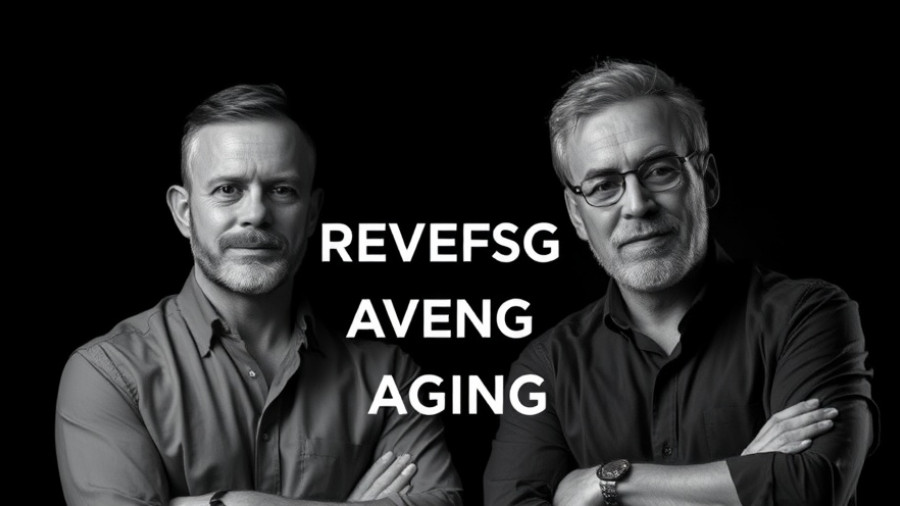
Understanding Aging: Is It a Disease?
In our modern world, discussions around aging often evoke feelings of anxiety and dread. However, as Dr. David Sinclair argues in his enlightening conversation with Andrew Huberman, we may need to rethink how we perceive the aging process. Sinclair proposes that aging should be classified as a disease, as its vast implications encompass 80 to 90% of chronic diseases such as heart disease and Alzheimer's. By recognizing aging as a disease, we can shift our focus toward actionable strategies that not only slow down the aging process but also potentially reverse it. This perspective allows us to view aging not as an inevitable fate but as a condition to be managed and mitigated.
In Essentials: The Biology of Slowing & Reversing Aging | Dr. David Sinclair, the discussion dives into innovative insights on longevity and aging as a disease, prompting deeper exploration of how we can enhance our health.
The Role of the Epigenome in Aging
At the core of Sinclair's research lies the epigenome, which represents the regulatory systems controlling our genes—imagine it as the conductor of an orchestra. The epigenome plays a crucial role in determining which genes are active or dormant at any given time, impacting our overall health. Over time, as Dr. Sinclair explains, this regulatory information can degrade—akin to scratches on a compact disc—leading to cellular dysfunction and, eventually, disease. Maintaining the integrity of the epigenome is vital for promoting longevity and ensuring our bodies can effectively combat aging.
Actionable Insights for Healthier Living
If we are to embrace Sinclair's perspective, we ought to consider practical measures that influence our epigenetic health. Here are a few research-backed strategies that can help:
- Fasting and Caloric Restriction: Studies indicate that implementing periods of fasting can activate longevity genes in our bodies, enhancing our metabolic health. Sinclair emphasizes that even skipping one meal a day—especially dinner—can trigger positive changes in our epigenome, potentially leading to a longer, healthier life.
- Understanding Blood Sugar and Insulin Levels: Elevated blood sugar and insulin levels speed up the aging process. By managing these levels through dietary choices—such as incorporating low-glycemic foods—and strategically timing our meals, we can help our bodies remain in a state conducive to longevity.
- Regular Physical Activity: Engaging in consistent aerobic exercise is proven to support healthy aging by raising levels of key proteins that protect our bodies from degeneration. As a result, maintaining muscle mass and stamina can contribute to a higher quality of life.
Mental and Emotional Wellness: A Holistic Approach
While physical health strategies are critical, we must not overlook mental health's role in successful aging. Sinclair's insights reinforce the importance of a balanced lifestyle harmonizing physical activity, nutritional choices, and mental well-being. For example, cultivating supportive social connections and managing stress levels can also contribute significantly to one's longevity and quality of life.
In conclusion, by recognizing aging as a manageable condition rather than an inevitable decline, we empower ourselves to take proactive steps toward healthier living. The scientific insights provided by leaders like Dr. Sinclair serve as a roadmap for navigating the complexities of aging.
The future of longevity research holds great potential; thus, embracing an informed perspective on aging can create opportunities for healthier, longer lives. For those embarking on their health journey, consider integrating some of these strategies into your daily routine. Your future self will surely thank you for it!
 Add Row
Add Row  Add
Add 


Write A Comment